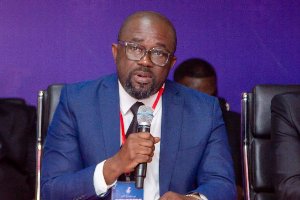Accra, Oct. 1, GNA - The first and second batches of Career Magistrates who were appointed five years ago have not been confirmed by the Judicial Service, the Association of Magistrates and Judges of Ghana (AMJG) disclosed in Accra on Thursday.
Speaking at the 30th Annual General Meeting in Accra, the Association said the situation had led to growing disillusionment among members and demanded that justice should be done. The career magistrate course, the brain child of the late Chief Justice George Kingsley Acquah, is to train non-lawyers to fill vacancies at the district magistrate courts. The meeting provides a platform for members to make their voice heard on matters that affect their performances and reward retiring colleagues.
Mr Justice Joseph Bawa Akamba, President of AMJG and a Justice of the Court of Appeal, said some of the career magistrates had served or over served their probation stipulation of two years under their contracts of appointment noting that "such an uncertain atmosphere could lead to low productivity".
He therefore appealed to management to take steps to honour their contractual provisions for affected members.
Throwing more light on the plight of Judges and Magistrates, Mr Justice Akamba noted that members were faced with accommodation problems with the opening of courts in the various districts. According to Mr Justice Akamba, although some district assemblies were lending support by providing accommodation for magistrates, circuit court judges had been sidelined and were hanging "like bats" because they did not answer the needs of the assemblies in disposing of their sanitation cases.
"This is not to suggest that all is well with accommodation for Superior Judges, many of who either do not have official accommodation and live very far from the courts or live in deplorable bungalows." Mr Justice Akamba called for a review of book allowances for members since that constituted an essential element in justice delivery. The President of AMJG observed that members of the lower bench did not possess a bargaining certificate to facilitate negotiations for improvement of their conditions of service.
He appealed to the Judicial Service to give members sufficient notice of their transfers since short notices served on members created inconveniences for them.
Mrs Justice Georgina T. Wood, Chief Justice, in her address, noted that the judiciary had continued to make strides in the promotion and maintenance of peace in the country but had been a subject of constant ridicule, complaints and abuse from all facets. According to the Chief Justice, the judiciary had been subject of negative commentary, complaints of disproportionate sentences, persistent media bashing and judicial corruption. She called on members to collectively take steps to clear the name of the judiciary and re-assert it as a strong, independent, efficient and effective third arm.
She deplored the use of "unsavoury language" by members when they disagreed with their colleagues' judgement. "A dissenting opinion, to me, is the fullest embodiment of the right to free expression; it symbolises judicial courage and independent thought." The Chief Justice said: "We must encourage dissent, but I believe that it is with respect to governance institution and it is in the conduct of public business in particular, such as in adjudication, that we must try to exhibit decorum and treat each with sensitivity. Mrs Wood noted that the past legal year had a number of challenges citing judicial corruption, limited working tools, dealing with huge backlog, large number of remand prisoners and poor remuneration of lower court judges.
She deplored the low case turnover in some courts saying the situation was seriously affecting public confidence in the judiciary. The Chief Justice said the judicial service had therefore instituted a monitoring mechanism, which would kick-start this year, to assess the impact of activities of the court in the regions.
"This new system would hopefully lead to an improved and more efficient justice delivery system."
On judicial corruption, Mrs Wood observed that in almost every corruption index generated by civil organisation, the judiciary was ranked high on the list of corrupt institutions in the country. "The branding of the judiciary in these terms has contributed to low self-esteem of members of the judiciary. We as the judiciary must wake up to this perception and collectively adopt self and institutional re-examination to purge ourselves from this perception." The Chief Justice therefore charged judges and magistrates to persistently and consistently oversee and monitor their court staff to ensure that their corrupt practices were perpetrated in their names. She assured judges and magistrates that conduct of court officials would be investigated and right sanctions applied if reported. On promotions, the Chief Justice said it would be based on merit and apologised to those who qualified for promotions but had not been promoted, urging them to call on her to address the situation.
General News of Thursday, 1 October 2009
Source: GNA












